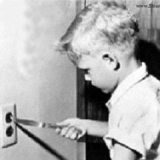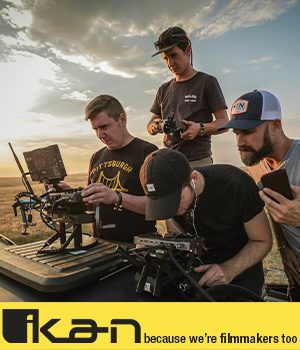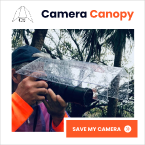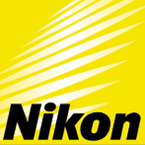- Forum
- Photography and Camera Forum
- Equipment Research, Buying and Using
- Digital Cameras
- I would like some help choosing my first camera
I would like some help choosing my first camera
-
 Topic Author
Topic Author
- Apprentice
- Newbie
- Followers: 17
- Posts: 1
-
Points:
410
Post #683154
I don't know much about what exactly do I need in the technical aspectsof a camera(Obviously what makes a great photo is a great photographer, but I'm just talking about the technical stuff like dynamic range, sensor size and such) to achieve a gorgeous looking portrait(with lots of details and sharpness) without going into the Full Frame world.
My budget is somewhere in the price range of a sony a6400 or a canon 80d (which are actually two cameras that I'm considering purchasing right now), and I'm going to use the camera to record videos as well, so that's a factor to consider.
I don't know if I should go with a DSLR or a Mirrorless camera considering the fact that I'm going in the direction of becoming a professional photographer in the future. If there is a professional portrait photographer or an expert that could help me with this decision it would be amazing.
The cameras that I am considering in the moment are the following: Sony a6400, Canon 80D, Canon M50, Canon SL2, Canon SL3, and a Nikon D7100.
Finally, I would like to thank everyone that will be helping me in advance, you're awesome.
-

- TCav
- The Lounger
-
- Nikon D7200. Sony A77 II. Pentax KP.
- Followers: 85
- Posts: 1036
-
Points:
31349
Post #708408
Post #708464
The real secret is the lens. If you put a crap lens on a $10,000 camera you're going to get a crap image. If you put a $600 lens on a $300 camera you can get some amazing images. When you purchase a camera you are really buying into a lens mount system, and that really is the difference.
Canon RF Mount: Very new and exciting lenses coming from canon, but they are expensive (at least for now) and the offerings are limited (again, for now). You can adapt Canon EF lenses to RF.
Canon EF/EF-S Mount: A literal mountain of lenses available for just anything you can think of. The EF-S mount is specifically for the APS-C sensor such as in the Rebel cameras (which can use both EF and EF-S lenses). With the introduction of the RF mount, EF mount lenses are coming down in price, though not quickly because they are still amazing lenses.
Sony E-Mount: Probably the most adapted mount out there. You can get just about lens to mount to a Sony camera, even Canon EF lenses. There are even websites and Facebook pages dedicated to adapting vintage lenses to Sony camera's. The number of lenses for Sony isn't as large as Canon EF, but you won't be lacking for focal length or coverage and the native Sony G Master lenses are top notch.
Nikon Z Mount: I personally don't have a lot of experience with Nikon, but Nikon just filed for bankruptcy protection. If they survive (I am sure they will) they have been used by professionals for decades. I have always compared Nikon to Volvo. I don't know anyone who drives a Volvo, but the people who do drive them seem to love them. It is just not a system I have any real experience with.
The two camera's you are considering are great camera's that will serve you for many years. Regardless of which you chose, you are making a good decision with either of those.
- Forum
- Photography and Camera Forum
- Equipment Research, Buying and Using
- Digital Cameras
- I would like some help choosing my first camera
Latest Reviews
The Olympus Pen E-P7 is an affordable micro four thirds mirrorless camera with 4K video capabilities, a 20.3MP sensor, and 121 focus points, making it a solid entry-level camera for beginners.
The Panasonic G9 II is a 25.2-megapixel micro four thirds camera with numerous features that make it punch out of its weight class, like 779 AF points, 5.8K video, and weather sealing.
The Fujifilm XT5 is a 40MP mirrorless camera capable of 6.2K video at 30p. With those specs, it’s an ideal choice for photographers needing a camera to pull double duty for imaging and video.
The Canon EOS R100 is an entry-level mirrorless camera introduced in 2023. But just because it’s an entry-level camera doesn’t mean it’s a bare-bones camera. Find out why in this review!
Latest Articles
In this guide to the bokeh effect, you’ll learn what bokeh is and the factors involved in creating it. You’ll also explore some beautiful example images to spark your creativity with bokeh!
Upgrade your kit in 2024 with the best intermediate camera on the market! The question is, what camera fits the bill? We’ve got three top options for you to choose from in this buyer’s guide.
The best photography jobs right now are a mix of tried-and-true gigs like wedding photography and new jobs highlighting AI’s capabilities, travel, and videography.
The Olympus Pen E-P7 is an affordable micro four thirds mirrorless camera with 4K video capabilities, a 20.3MP sensor, and 121 focus points, making it a solid entry-level camera for beginners.
Starting a photography business is one thing; sustaining your business over a long period of time is another. Use the tips in this professional photography guide to build something with longevity!
The Panasonic G9 II is a 25.2-megapixel micro four thirds camera with numerous features that make it punch out of its weight class, like 779 AF points, 5.8K video, and weather sealing.
Cinematic photography is an interesting genre that combines photographic and videographic skills along with effective storytelling techniques. The result? Highly impactful images!
Newborn photography requires skill, the right gear, and a lot of patience. This beginner’s guide discusses critical topics that will help you be more prepared for before, during, and after the shoot.














